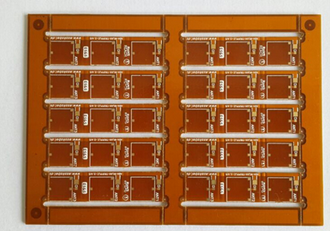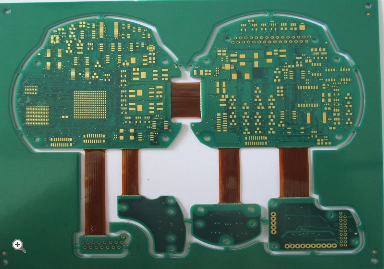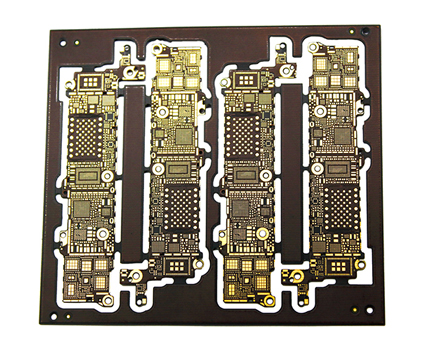-
 Agriculture
Agriculture
-
 Health-Care
Health-Care
-
 Environment
Environment
-
 Construction-Real-Estate
Construction-Real-Estate
-
 Tools-Hardware
Tools-Hardware
-
 Home-Garden
Home-Garden
-
 Furniture
Furniture
-
 Luggage-Bags-Cases
Luggage-Bags-Cases
-
 Medical-devices-Supplies
Medical-devices-Supplies
-
 Gifts-Crafts
Gifts-Crafts
-
 Sports-Entertainment
Sports-Entertainment
-
 Food-Beverage
Food-Beverage
-
 Vehicles-Transportation
Vehicles-Transportation
-
 Power-Transmission
Power-Transmission
-
 Material-Handling
Material-Handling
-
 Renewable-Energy
Renewable-Energy
-
 Safety
Safety
-
 Testing-Instrument-Equipment
Testing-Instrument-Equipment
-
 Construction-Building-Machinery
Construction-Building-Machinery
-
 Pet-Supplies
Pet-Supplies
-
 Personal-Care-Household-Cleaning
Personal-Care-Household-Cleaning
-
 Vehicle-Accessories-Electronics-Tools
Vehicle-Accessories-Electronics-Tools
-
 School-Office-Supplies
School-Office-Supplies
-
 Packaging-Printing
Packaging-Printing
-
 Mother-Kids-Toys
Mother-Kids-Toys
-
 Business-Services
Business-Services
-
 Commercial-Equipment-Machinery
Commercial-Equipment-Machinery
-
 Apparel-Accessories
Apparel-Accessories
-
 Security
Security
-
 Shoes-Accessories
Shoes-Accessories
-
 Vehicle-Parts-Accessories
Vehicle-Parts-Accessories
-
 Jewelry-Eyewear-Watches-Accessories
Jewelry-Eyewear-Watches-Accessories
-
 Lights-Lighting
Lights-Lighting
-
 Fabric-Textile-Raw-Material
Fabric-Textile-Raw-Material
-
 Fabrication-Services
Fabrication-Services
-
 Industrial-Machinery
Industrial-Machinery
-
 Consumer-Electronics
Consumer-Electronics
-
 Electrical-Equipment-Supplies
Electrical-Equipment-Supplies
-
 Electronic-Components-Accessories-Telecommunications
Electronic-Components-Accessories-Telecommunications
-
 Home-Appliances
Home-Appliances
-
 Beauty
Beauty
-
 Chemicals
Chemicals
-
 Rubber-Plastics
Rubber-Plastics
-
 Metals-Alloys
Metals-Alloys
- Masonry Materials
- Curtain Walls & Accessories
- Earthwork Products
- Fireproofing Materials
- Heat Insulation Materials
- Plastic Building Materials
- Building Boards
- Soundproofing Materials
- Timber
- Waterproofing Materials
- Balustrades & Handrails
- Bathroom & Kitchen
- Flooring & Accessories
- Tiles & Accessories
- Door, Window & Accessories
- Fireplaces & Stoves
- Floor Heating Systems & Parts
- Stairs & Stair Parts
- Ceilings
- Elevators & Escalators
- Stone
- Countertops, Vanity Tops & Table Tops
- Mosaics
- Metal Building Materials
- Multifunctional Materials
- Ladders & Scaffoldings
- Mouldings
- Corner Guards
- Decorative Films
- Formwork
- Building & Industrial Glass
- Other Construction & Real Estate
- Wallpapers/Wall panels
- HVAC System & Parts
- Outdoor Facilities
- Prefabricated Buildings
- Festive & Party Supplies
- Bathroom Products
- Household Sundries
- Rain Gear
- Garden Supplies
- Household Cleaning Tools & Accessories
- Lighters & Smoking Accessories
- Home Storage & Organization
- Household Scales
- Smart Home Improvement
- Home Textiles
- Kitchenware
- Drinkware & Accessories
- Dinnerware, Coffee & Wine
- Home Decor
- Golf
- Fitness & Body Building
- Amusement Park Facilities
- Billiards, Board Game,Coin Operated Games
- Musical Instruments
- Outdoor Affordable Luxury Sports
- Camping & Hiking
- Fishing
- Sports Safety&Rehabilitation
- Ball Sports Equipments
- Water Sports
- Winter Sports
- Luxury Travel Equipments
- Sports Shoes, Bags & Accessories
- Cycling
- Other Sports & Entertainment Products
- Artificial Grass&Sports Flooring&Sports Court Equipment
- Scooters
- Food Ingredients
- Honey & Honey Products
- Snacks
- Nuts & Kernels
- Seafood
- Plant & Animal Oil
- Beverages
- Fruit & Vegetable Products
- Frog & Escargot
- Bean Products
- Egg Products
- Dairy Products
- Seasonings & Condiments
- Canned Food
- Instant Food
- Baked Goods
- Other Food & Beverage
- Meat & Poultry
- Confectionery
- Grain Products
- Feminie Care
- Hair Care & Styling
- Body Care
- Hands & Feet Care
- Hygiene Products
- Men's Grooming
- Laundry Cleaning Supplies
- Travel Size & Gift Sets
- Room Deodorizers
- Other Personal Care Products
- Pest Control Products
- Special Household Cleaning
- Floor Cleaning
- Kitchen & Bathroom Cleaning
- Oral Care
- Bath Supplies
- Yellow Pages
- Correction Supplies
- Office Binding Supplies
- Office Cutting Supplies
- Board Erasers
- Office Adhesives & Tapes
- Education Supplies
- Pencil Cases & Bags
- Notebooks & Writing Pads
- File Folder Accessories
- Calendars
- Writing Accessories
- Commercial Office Supplies
- Pencil Sharpeners
- Pens
- Letter Pad/Paper
- Paper Envelopes
- Desk Organizers
- Pencils
- Markers & Highlighters
- Filing Products
- Art Supplies
- Easels
- Badge Holder & Accessories
- Office Paper
- Printer Supplies
- Book Covers
- Other Office & School Supplies
- Stationery Set
- Boards
- Clipboards
- Stamps
- Drafting Supplies
- Stencils
- Electronic Dictionary
- Books
- Map
- Magazines
- Calculators
- Baby & Toddler Toys
- Educational Toys
- Classic Toys
- Dress Up & Pretend Play
- Toy Vehicle
- Stuffed Animals & Plush Toys
- Outdoor Toys & Structures
- Balloons & Accessories
- Baby Food
- Children's Clothing
- Baby Supplies & Products
- Maternity Clothes
- Kids Shoes
- Baby Care
- Novelty & Gag Toys
- Dolls & Accessories
- Puzzle & Games
- Blocks & Model Building Toys
- Toddler Clothing
- Baby Clothing
- Kids' Luggage & Bags
- Arts, Crafts & DIY Toys
- Action & Toy Figures
- Baby Appliances
- Hobbies & Models
- Remote Control Toys
- Promotional Toys
- Pregnancy & Maternity
- Hygiene Products
- Kid's Textile&Bedding
- Novelty & Special Use
- Toy Weapons
- Baby Gifts
- Baby Storage & Organization
- Auto Drive Systems
- ATV/UTV Parts & Accessories
- Marine Parts & Accessories
- Other Auto Parts
- Trailer Parts & Accessories
- Auto Transmission Systems
- Train Parts & Accessories
- Universal Parts
- Railway Parts & Accessories
- Auto Brake Systems
- Aviation Parts & Accessories
- Truck Parts & Accessories
- Auto Suspension Systems
- Auto Lighting Systems
- New Energy Vehicle Parts & Accessories
- Auto Steering Systems
- Wheels, Tires & Accessories
- Bus Parts & Accessories
- Auto Performance Parts
- Cooling System
- Go-Kart & Kart Racer Parts & Accessories
- Air Conditioning Systems
- Heavy Duty Vehicle Parts & Accessories
- Auto Electrical Systems
- Auto Body Systems
- Auto Engine Systems
- Container Parts & Accessories
- Motorcycle Parts & Accessories
- Refrigeration & Heat Exchange Equipment
- Machine Tool Equipment
- Food & Beverage Machinery
- Agricultural Machinery & Equipment
- Apparel & Textile Machinery
- Chemical Machinery
- Packaging Machines
- Paper Production Machinery
- Plastic & Rubber Processing Machinery
- Industrial Robots
- Electronic Products Machinery
- Metal & Metallurgy Machinery
- Woodworking Machinery
- Home Product Manufacturing Machinery
- Machinery Accessories
- Environmental Machinery
- Machinery Service
- Electrical Equipment Manufacturing Machinery
- Industrial Compressors & Parts
- Tobacco & Cigarette Machinery
- Production Line
- Used Industrial Machinery
- Electronics Production Machinery
- Other Machinery & Industrial Equipment
- Camera, Photo & Accessories
- Portable Audio, Video & Accessories
- Television, Home Audio, Video & Accessories
- Video Games & Accessories
- Mobile Phone & Accessories
- Electronic Publications
- Earphone & Headphone & Accessories
- Speakers & Accessories
- Smart Electronics
- TV Receivers & Accessories
- Mobile Phone & Computer Repair Parts
- Chargers, Batteries & Power Supplies
- Used Electronics
- VR, AR, MR Hardware & Software
- Projectors & Presentation Equipments
- Other Consumer Electronics
- Cables & Commonly Used Accessories
- Computer Hardware & Software
- Displays, Signage and Optoelectronics
- Discrete Semiconductors
- Wireless & IoT Module and Products
- Telecommunications
- Connectors, Terminals & Accessories
- Development Boards, Electronic Modules and Kits
- Circuit Protection
- Sensors
- Isolators
- Audio Components and Products
- Integrated Circuits
- Power Supplies
- Relays
- RF, Microwave and RFID
- Electronic Accessories & Supplies
- Passive Components
- PCB & PCBA
- Air Quality Appliances
- Home Appliance Parts
- Heating & Cooling Appliances
- Small Kitchen Appliances
- Laundry Appliances
- Water Heaters
- Water Treatment Appliances
- Refrigerators & Freezers
- Personal Care & Beauty Appliances
- Major Kitchen Appliances
- Cleaning Appliances
- Second-hand Appliances
- Smart Home Appliances
- Other Home Appliances
- Energy Chemicals
- Inorganic Chemicals
- Basic Organic Chemicals
- Agrochemicals
- Admixture & Additives
- Catalysts & Chemical Auxiliary Agents
- Pigments & Dyestuff
- Coating & Paint
- Daily Chemicals
- Polymer
- Organic Intermediate
- Adhesives & Sealants
- Chemical Waste
- Biological Chemical Products
- Surface Treatment Chemicals
- Painting & Coating
- Chemical Reagents
- Flavor & Fragrance
- Non-Explosive Demolition Agents
- Other Chemicals
- Custom Chemical Services
Expert Flexible Printed Circuits Assembly Delivering Superior Quality And Enhanced Product Durability
In the rapidly evolving landscape of modern electronics, the demand for compact, lightweight, and durable devices has never been higher. This is where expert flexible printed circuits assembly comes into play, delivering superior quality and enhanced product durability that sets new standards in the industry. Flexible printed circuits (FPCs) are thin, bendable electronic boards that replace traditional rigid wiring, enabling innovative designs in everything from smartphones and wearables to medical devices and automotive systems. By leveraging advanced materials and precision manufacturing techniques, this assembly process ensures that products not only meet but exceed performance expectations, offering reliability in even the most challenging environments. As consumers and industries push for more efficient and resilient technology, understanding the intricacies of flexible circuits assembly becomes crucial for anyone involved in electronics development or innovation.
Precision Engineering and Material Selection
At the heart of expert flexible printed circuits assembly is precision engineering, which begins with the careful selection of materials. High-quality substrates, such as polyimide or polyester films, form the foundation of FPCs, providing excellent thermal stability and mechanical flexibility. These materials are chosen for their ability to withstand repeated bending and twisting without compromising electrical performance. Additionally, conductive materials like copper are meticulously applied, often through processes like etching or plating, to create intricate circuit patterns that ensure efficient signal transmission.
Beyond the base materials, the assembly process involves precise layering and lamination techniques. Multiple layers of circuits can be stacked and bonded using adhesives that maintain integrity under stress and temperature fluctuations. This attention to detail in material selection and engineering not only enhances the durability of the final product but also minimizes the risk of failures, such as short circuits or delamination. By focusing on these foundational elements, manufacturers can deliver FPCs that excel in demanding applications, from aerospace to consumer electronics, where reliability is non-negotiable.
Advanced Manufacturing Techniques
Expert assembly relies on state-of-the-art manufacturing techniques that optimize both quality and efficiency. Automated processes, such as surface-mount technology (SMT) and robotic placement, are employed to accurately position components on the flexible substrates. This automation reduces human error and ensures consistent alignment, which is critical for maintaining signal integrity and preventing defects. Moreover, techniques like laser drilling and photolithography allow for the creation of ultra-fine features, enabling higher circuit densities and more compact designs.
Quality control is integrated throughout the manufacturing cycle, with rigorous testing protocols such as automated optical inspection (AOI) and in-circuit testing (ICT). These methods detect issues like misalignments or soldering defects early on, preventing costly rework and ensuring that each FPC meets stringent industry standards. By combining these advanced techniques with real-time monitoring, manufacturers can achieve a high yield of defect-free assemblies, ultimately contributing to the superior quality and longevity of the end products.
Enhanced Durability and Reliability
One of the standout benefits of expert flexible printed circuits assembly is the enhanced durability it imparts to electronic devices. FPCs are inherently resistant to vibration, shock, and mechanical stress, making them ideal for applications in harsh environments, such as automotive systems or industrial machinery. The flexibility of these circuits allows them to absorb and distribute forces more effectively than rigid boards, reducing the likelihood of cracks or breaks over time. This resilience translates to longer product lifespans and fewer field failures, which is a key advantage for manufacturers and end-users alike.
Furthermore, the assembly process includes protective coatings and encapsulation methods that shield the circuits from environmental factors like moisture, dust, and chemical exposure. Conformal coatings, for instance, create a barrier that prevents corrosion and insulation breakdown, while maintaining the circuit's flexibility. By prioritizing durability in every step, from design to final inspection, expert assembly ensures that FPCs can endure the rigors of daily use, thereby enhancing the overall reliability and trustworthiness of the products they power.
Applications Across Industries
The versatility of flexible printed circuits assembly makes it a cornerstone technology across a wide range of industries. In the consumer electronics sector, FPCs enable the sleek, lightweight designs of smartphones, tablets, and wearable devices, where space is at a premium. Their ability to fold and conform to irregular shapes allows for innovative form factors that would be impossible with traditional wiring. This has revolutionized product aesthetics and functionality, driving consumer satisfaction and brand loyalty.
Beyond consumer goods, FPCs play a critical role in medical devices, such as implantable monitors and diagnostic equipment, where reliability and biocompatibility are paramount. In the automotive industry, they are used in advanced driver-assistance systems (ADAS) and infotainment consoles, contributing to safer and more connected vehicles. Each application benefits from the superior quality and durability of expert assembly, highlighting how this technology supports progress in fields that demand high performance and innovation.
Future Trends and Sustainability
As technology continues to advance, the future of flexible printed circuits assembly is poised for exciting developments. Trends such as the Internet of Things (IoT) and 5G connectivity are driving demand for even smaller, more efficient FPCs that can handle higher data rates and power densities. Innovations in materials science, such as the use of biodegradable substrates or lead-free solders, are also gaining traction, aligning with global sustainability goals. These advancements will further enhance the quality and environmental friendliness of FPC assemblies.
Moreover, the integration of artificial intelligence and machine learning in manufacturing processes promises to optimize assembly lines for greater precision and waste reduction. By adopting these trends, the industry can continue to deliver products that not only excel in performance but also minimize their ecological footprint. This forward-thinking approach ensures that expert flexible printed circuits assembly will remain at the forefront of electronic innovation, providing lasting value in an ever-changing world.
REPORT































































































































































































































































































































































































































































































































































































